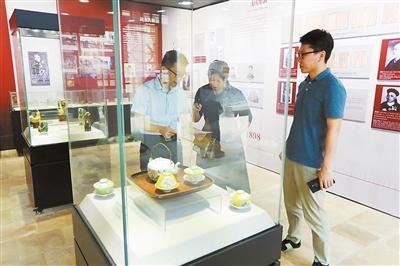

Yung Wing Museum opens at site of virtuous students
The newly built museum honoring Yung Wing (Rong Hong) opened on May 17 spotlighting Zhuhai's famous native son as the forefather of Chinese overseas study. Already, visitors are arriving to learn about his role in the study-abroad movements of modern China.
The Yung Wing Museum is located at 2 Lane 1, Dongda Jie, Nanping Town, Xiangzhou District. It occupies the site of the former Zhenxian (Select the Virtuous) School, which had been founded by Yung himself. The building devotes 600 sq m out of 800 sq m (957 sq yd) of floor space to the display of more than 200 images and 100 historical documents.
The first display area portrays Yung's life path sequentially, with a focus on his studies and life abroad. Yung was the first Chinese student to receive a degree from an American university (Yale College in 1854). He later established the Chinese Educational Mission (CEM), which sent 120 Chinese children to study in America.

Cultural relics in showcases [Photo by Chen Lin / Zhuhai Daily]
Also featured are 48 other outstanding overseas scholars who went abroad before the 1949 founding of the People's Republic of China. They each made great contributions to the country's development after they returned.
A holographic projection of historical scenes supplement pictures and introductory texts on the wall. Thirty-two display cases hold cultural relics including the Hsiang-shan (Xiangshan) County Annals, unique vases, and colorful lion and rooster-shaped decorations made in the Qing Dynasty (1644-1911).
The museum will become an important "red" (related to Chinese revolutionary sites) cultural attraction site and a venue for educational activities related to historical humanities, city culture, and patriotism, according to a staff member.
Zhuhai native Yung Wing (1828-1912) is known as a noted educator, diplomat, and social activist.
Related
Native son Rong planted seed of Reform & Opening Up
The new Yung Wing Museum was ready enough on Dec 22 to commemorate the 190th birthday of its namesake during the 40th anniversary of China's Reform & Opening-Up policy, in which he played an early historic key role.


